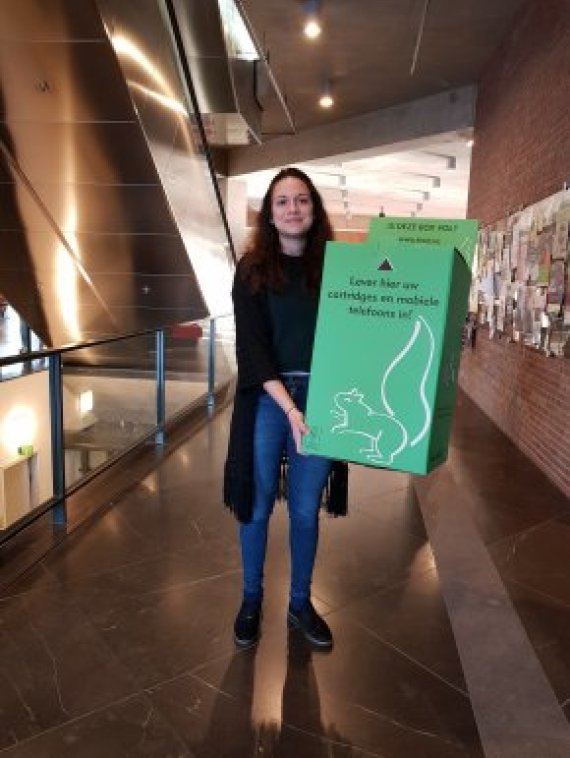© Roelof Kleis
International Development Bachelor’s student Abigail Johnson and her group (Lenne Smeets, Jasmine Baswari and Else Kleiterp) came up with that idea when doing the Resistance, Power and Movements course. This is a new optional course in the programme of the Sociology of Development and Change chair group. Part of the course involves initiating your own ‘act of resistance’, minor or otherwise. The idea is you learn by doing.
Raw materials
Johnson’s group thought of doing something with discarded phones. She talks of research that shows there are at least three million old, unused mobile phones in Dutch homes alone. ‘A lot of the raw materials that are used in mobile phones come from mines where working conditions are bad,’ says Johnson. ‘People often don’t realize this when they buy a new phone. We want to raise awareness with our action. What is more, recycling reduces the need for new raw materials.’ According to research, one telephone contains 160 grams of 30 different raw materials, mainly metals. That includes rare metals such as boron, gold, copper and silver. ‘There is enough gold, for example, in 200 phones for one wedding ring.’
There is enough gold in 200 phones for one wedding ring
So it pays to collect old phones. However, Johnson discovered that is not an entirely new idea on campus. ‘It turned out there was already a cardboard collection container on the third floor of Leeuwenborch.’ They talked to the building manager and got that container moved to the ground floor. Now there is a similar container on the ground floor in Forum thanks to Johnson and her group. Part of the proceeds from the mobiles that are handed in will go to KNGF, the organization that trains dogs for the blind.
++++++++++++++++++++++++++++++++++++++++++++++++++++++++++++++++++++++
*Action, action, action! The new Resistance, Power and Movements course is in response to the need felt by students to do something about the situation in the world, say lecturers Michiel Köhne and Elisabet Rasch. This does not mean they want to turn students into activists. Köhne: ‘The course is intended to give an understanding of how power, social movements and resistance work. We do this together with the Build Your Movement trainers. We explain the underlying theories and they talk about the practical application.’ Fifteen students took the module this first time. Initiating your own action is one part of the course.
++++++++++++++++++++++++++++++++++++++++++++++++++++++++++++++++++++++

